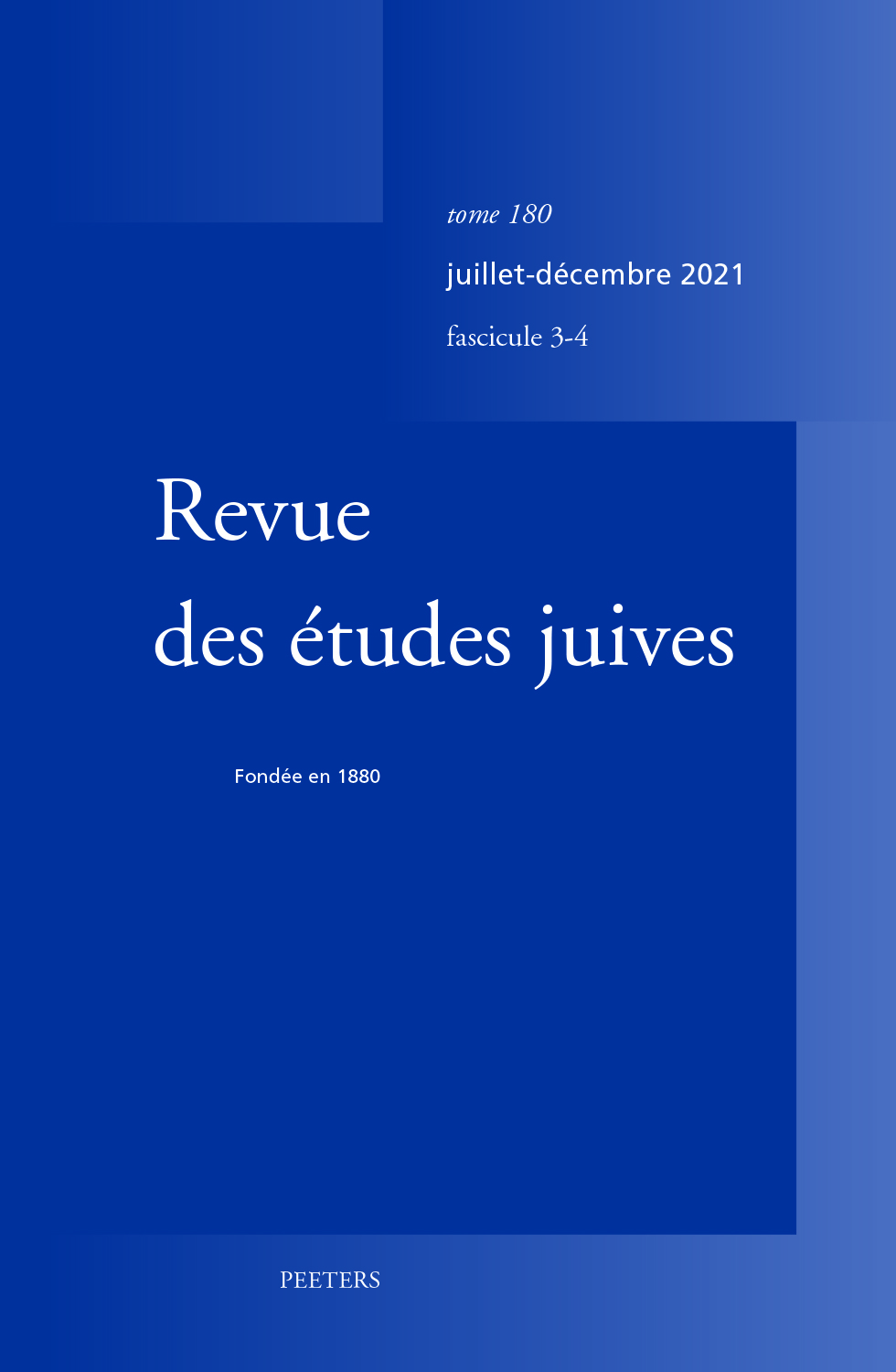 previous article in this issue previous article in this issue | next article in this issue  |

Preview first page |
Document Details : Title: Le cas étrange de Simon Deutz (1802-1844) Author(s): LANDAU, Philippe-E. Journal: Revue des Études Juives Volume: 164 Issue: 1-2 Date: janvier-juin 2005 Pages: 213-234 DOI: 10.2143/REJ.164.1.578767 Abstract : Troisième enfant du grand rabbin du Consistoire central, Simon Deutz (1802-1844) a défrayé la chronique sous la Restauration. Élevé dans un milieu traditionaliste, il préfère mener une vie dissolue. Malgré son opposition violente à la conversion de son beau-frère David Drach, il fait lui aussi ce choix en 1828 à Rome en grande pompe. Mais sa foi faiblit et il recommence ses errances qui le conduisent à Rome auprès des émigrés légitimistes. À Londres, il devient Hyacinthe de Gonzague et obtient la confiance de la duchesse de Berry. Réfugiée à Nantes, il la trahit néanmoins en obtenant de Thiers la récompense de 500 000 francs. Sa trahison jette le discrédit sur la communauté et, pour Victor Hugo comme pour Alexandre Dumas, Deutz représente le «nouveau Judas». Dès 1840, plus rien ne subsiste de sa fortune, ce qui le pousse à finir ses jours en Louisiane sous l'identité de Sylvain Delatour. Le nom de Simon Deutz symbolisera, tout au long du XIXe siècle, la figure du juif apatride et capable de trahison. Third child of the Consistory's Chief Rabbi, Simon Deutz (1802-1844) caused a scandal under the Restauration. Although he was brought up in a traditionalist milieu, he abandoned the rabbinic ways to lead a dissolute living. After the conversion to Catholicism of his brother-in-law David Drach, he also decided to become a Catholic and pompously endorsed that religion in Rome in 1828. However, his Catholicism waned and he resumed his wanderings as early as 1830. In London, amongst legitimist immigrants, he became Hyacinthe de Gonzague and followed the Duchess of Berry. In spite of the fact that he was his great con man, he betrayed her and revealed her place to Thiers, for 500 000 francs. From then on, his betrayal discredited the community. For Victor Hugo and Alexandre Dumas, he was the «new Judas». Early as 1840, nothing was left of his fortune. He left for Louisiana when he ended up his days quite miserably under the name of Sylvain Delacour. All along the 19th century, Simon Deutz has symbolized the wandering Jew and the traitor, a negative image... |
|


